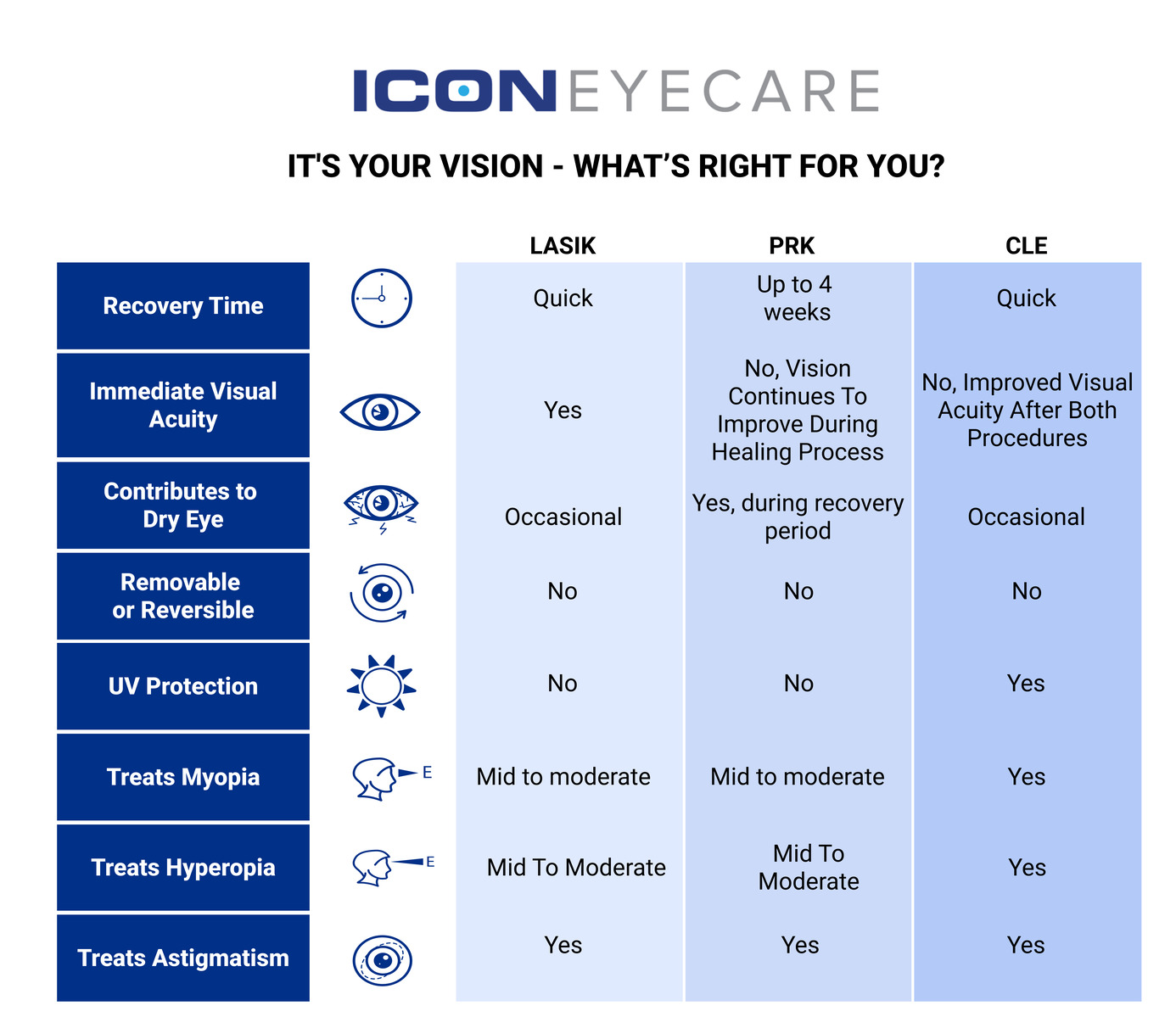LASIK eye surgery isn’t the only option for your vision correction.
If you aren’t the right fit for LASIK, there are other options! At ICON Eyecare, we are experts at a number of alternative treatments to LASIK eye surgery. We want you to explore the various eye treatments that could help correct your vision.
This procedure also changes the shape of the cornea, but it is a better option for those that struggle with dry eyes or have thin corneas.
The main difference between PRK and LASIK is how the surgeon accesses your cornea during the procedure. With LASIK, a thin flap is created on the surface of the cornea. With PRK, the thin outer layer of the cornea (the epithelium) is gently swabbed away to allow the surgeon to access the treatment area. This outer layer naturally regenerates after surgery. Due to the nature of the procedure, PRK will include a longer recovery time than LASIK. The results appear more gradually, and vision improvements will take longer to stabilize. However, PRK is a safe and effective alternative for patients with thin corneas or other restrictions who may not qualify for LASIK.
CLE (Clear Lens Exchange), also known as refractive lens exchange (RLE), is a procedure that can address refractive errors and other concerns by replacing your eye’s natural lens with an artificial lens. The procedure is the same as cataract, where the eye’s natural lens is removed and replaced with an artificial IOL, the biggest difference is that this surgery is performed before a cataract develops – a clear lens. The lens replacement is a vision correction procedure and, depending on the IOL replacement, can greatly reduce or even eliminate the need for glasses or contacts.
CLE is an intraocular procedure, where LASIK only addresses the surface of the eye in reshaping the cornea. CLE replaces the natural lens, meaning you won’t have to worry about developing cataracts following the procedure. Call to schedule your consultation and learn if CLE may be the best vision correction option for you.
ICON’s team of expert ophthalmologists and optometrists can help you understand your options when it comes to vision correction. Which one is best for you and your eye health? Schedule a free consultation to find out!
